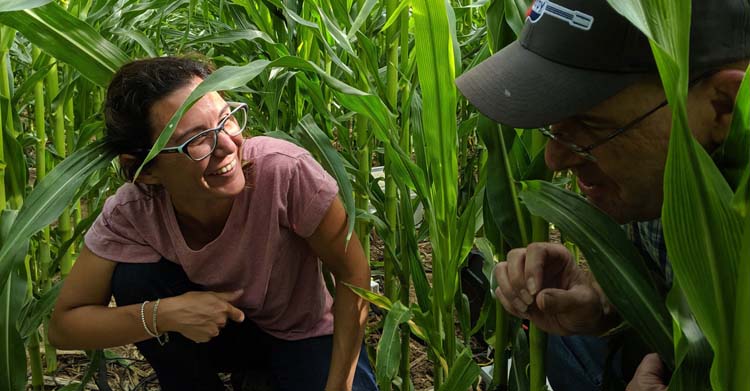Bennet Announces New Legislation to Expand Opportunities for Student Apprenticeship Programs
Student Apprenticeship Act Will Help Bridge Higher Education and Labor to Better Support Student Apprenticeships
Bennet Announces Legislation During National Apprenticeship Week
Washington, D.C. – Today, Colorado U.S. Senator Michael Bennet announced he will soon introduce the Student Apprenticeship Act, new legislation to close the gap between higher education and labor by modernizing workforce training and accelerating the growth of registered apprenticeship programs nationwide. Bennet made the announcement during National Apprenticeship Week, which runs November 11-17.
“Student apprenticeships are a proven way to prepare Americans for jobs in the 21st century economy, but there is a disconnect between higher education and a workforce seeking highly-skilled and trained candidates,” said Bennet. “Apprenticeships can bolster a student’s academic studies with training and skills development that better prepares them for their future career. We have an opportunity through the Student Apprenticeship Act to better connect education and workforce development, helping employers secure the skilled workforce they need, while giving workers a pathway to the middle class and beyond.”
Despite low national unemployment, seven million jobs remain vacant due to a lack of domestic talent with the skills companies need and desire. Studies show that student apprenticeships, which allow students to learn job-related skills while earning college credit, lead to quality employment, equip workers with valuable skills, and help employers meet their current and future workforce needs.
Bennet’s Student Apprenticeship Act would:
- Create a new grant program to encourage the establishment of apprenticeships between institutions of higher education, employers, and workforce intermediaries. Student participants would earn college credit, industry credentials, and compensation for their work. Employers would pay at least 25 percent of the student’s college tuition and fees.
- Expand registered apprenticeship programs by creating competitive grants to fund costs associated with developing, implementing, and strengthening student-apprenticeship programs, including: developing curricula and standards, increasing access to updated equipment and learning tools, and providing support services such as transportation, child care, and housing subsidies;
- Revise the federal work-study program to include apprenticeship programs, allowing eligible students to earn additional funds to pay tuition costs through work that aligns with their studies and intended career path.
Bennet’s Student Apprenticeship Act is supported by the following organizations: Jobs for the Future, Third Way, New America, Small Business Majority, CareerWise Colorado, Center for Law and Social Policy, American Association of Community Colleges, National Association of Workforce Boards, Advance CTE, William Rainey Harper College, Arapahoe Community College, the Colorado Community College System, Association for Career and Technical Education, and Year Up.
“We need to ensure that everyone everywhere has the opportunity to earn a good life. Apprenticeships are a key part of that, allowing workers to earn while they learn. We applaud Senator Bennet’s leadership on this with his legislation to boost registered apprenticeships nationwide and modernize this training. We support his important legislation and encourage bipartisan support and swift action,” said Gabe Horwitz, Senior Vice President, Economic Program at Third Way.
“Work-based learning, including apprenticeships, is a critical component of high-quality career and technical education programs,” said LeAnn Wilson, executive director of the Association for Career and Technical Education. “The Student Apprenticeship Act makes important investments in building and expanding apprenticeships, and it makes worthy updates to the federal work-study program. We support the bill and commend Senator Bennet for his efforts in this space.”
“Year Up applauds Senator Bennet’s introduction of the Student Apprenticeship Act, which represents a key opportunity to facilitate cross-sector collaboration and expand apprenticeships nationwide to help close the Opportunity Divide in this country. Making work-based learning opportunities like apprenticeships more accessible and effective will help ensure that the millions of young adults currently disconnected from education and jobs will have a viable pathway to build skills, earn college credits, and make money. We urge Senators to support this impactful legislation,” said Gerald Chertavian, Founder and CEO, Year Up.
“Apprenticeship programs play a vital role in preparing learners of all ages with the skills, knowledge and postsecondary/industry-recognized credentials necessary to succeed in-demand, high-wage, high-skill careers,” said Kimberly Green, Executive Director of Advance CTE. “We are pleased to support the Student Apprenticeship Act and its focus on expanding access for learners, particularly for nontraditional learners, to apprenticeships and to articulating the integral role apprenticeships can have in career pathways.”
The bill text is available HERE and a summary is available HERE.
FOOTER BOX W/O Related News
SPREAD THE NEWS
COMMENT, Like, Follow & SHARE @I70Scout












 Fort Morgan, CO — Morgan Community College (MCC) invites the public to the Fort Morgan campus, located at 920 Barlow Road, for the groundbreaking of Poplar Hall Agriculture Center for Innovation on November 5, 2019 at 11 a.m. The Agriculture Center for Innovation at Poplar Hall will provide needed space for MCC agriculture programs, including Agriculture and Business Management (ABM), Precision Agriculture, and Unmanned Aircraft Systems. The new facility will also provide space to grow the college’s agriculture offerings, including the Industrial Controls Technician Certificate program under development. The 4,905 square foot facility will feature a classroom, computer laboratory, shop, and office space.
Fort Morgan, CO — Morgan Community College (MCC) invites the public to the Fort Morgan campus, located at 920 Barlow Road, for the groundbreaking of Poplar Hall Agriculture Center for Innovation on November 5, 2019 at 11 a.m. The Agriculture Center for Innovation at Poplar Hall will provide needed space for MCC agriculture programs, including Agriculture and Business Management (ABM), Precision Agriculture, and Unmanned Aircraft Systems. The new facility will also provide space to grow the college’s agriculture offerings, including the Industrial Controls Technician Certificate program under development. The 4,905 square foot facility will feature a classroom, computer laboratory, shop, and office space.